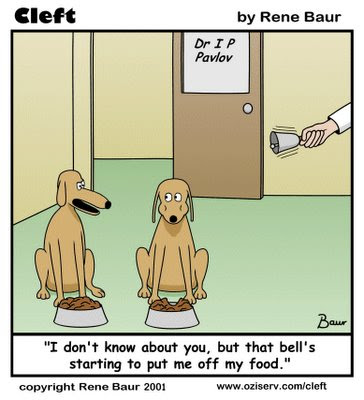Back to all posts
Latest posts
A masterclass in creating value
What’s going on at parkrun?
Virtue-signalling all the way to the bank
Bud Light: brand purpose or virtue-signalling?
The Coddling of the American Mind, by Greg Lukianoff and Jonathan Haidt
Belonging, by Owen Eastwood
Such a simple thing
The Long Win, and The Scout Mindset
The Cult of We by Eliot Brown and Maureen Farrell
Coffee and covid modelling
By theme
Marketing strategy
Insight & metrics
Innovation & inspiration
Brand & positioning
Marketing communications
Business purpose
Leadership
By industry sector
Financial services
Retail
FMCG
Technology & start-ups
Consumer services
Business to business
Other sectors
By type
Books
Comment
Quotes
Thought leadership
Last year I wrote in Market Leader about what financial services providers need to do to rebuild trust. Mainly it comes down to the basics of any decent brand or business: figure out what people expect, value and will pay for; offer whatever aspects of it make commercial sense for the business; and deliver what you offer. Implicitly, that means don’t mislead, don’t offer something you can’t or won’t deliver consistently. I mentioned the banks’ Read More
Ever had a boss who habitually seizes on something another business is doing and says: “Should we be doing that?” Social media is causing the same insecurity complex in the digital immigrant generation. It’s a sort of digital Fear Of Missing Out. Questions often asked include: how many Facebook friends does the brand have? Is everyone moving to Instagram? Will being on Pinterest make us cool? Can we do a partnership with Foursquare? Or, more likely: Now that we have our Facebook page/Twitter feeds/app, Read More
The death of the 30 second TV ad was recently declared (again), this time by an advertising guru, Trevor Beattie. Yes, online overtook TV in its share of advertising spend some time ago, and YouTube is now the second largest search engine, as Google love to tell us. Along with the rise of social media and two-screen activity, Sky+ and TiVo, it seems quite plausible that the TV commercial should be replaced by advertising that we either choose – Read More
Can Marissa Mayer save Yahoo? If she does she’ll be hailed as a great leader, in demand to turn around the next struggling digital media business, or maybe she’ll make a leap into another sector that needs her touch. If Yahoo doesn’t make it, well, it’s probably not her fault. There are lots of factors working against her, not least timing – it might just be too late. Do you see the logical fallacy here? Read More
It’s hardly the end of capitalism, but the horsemeat scandal is showing large food retailers and manufacturers how it feels to be a banker. Meanwhile consumers – or people, as we might style ourselves – don’t know who we can trust. Marketing is seen as manipulative, and delivering profits is represented in the media as exploitation of customers. Sam Laidlaw of Centrica announced decent but hardly sensational results last week – and had to explain to John Humphreys on the Today programme why they hadn’t forgone profits for the sake of “the squeezed middle”. Read More
According to the service profit chain theory, satisfied employees deliver satisfied customers, which means sales will rise and profits will grow. So in a service business, if you focus on keeping employees happy and motivated, that’s job done. Who could disagree with that? I can.
I once worked with a contact centre business in the US mid-west which had the happiest employees in the state, and probably in the entire contact centre industry in the USA. Read More
Jeanette Winterson wrote in her autobiography that her mother despaired of her, saying, “Why be happy when you could be normal?” Mrs Winterson saw conformity as a virtue. In her worldview, Jeanette’s job was to fit in rather than be fulfilled by being herself. Jeanette couldn’t help it though – she wasn’t trying to be different, she was different from the sort of girl her mother expected her to be. Accepting the status quo wasn’t an option for her. Read More
This advertisement was on the outside back cover of the Independent’s Saturday listings magazine, Radar, on 16th Nov. If these are deliberate mistakes then I don’t get the joke. Can anyone explain it to me? Call me old-fashioned, but a book retailer that can’t spell its own name somehow isn’t as appealing as it might be…
No sooner has the GoCompare opera singer been silenced than we have the TopCashback man, dressed in the world’s weirdest outfit – neon colours and those awful nappy trousers that sometimes look cool on young women but never, never on overweight men. He prances about to a jingle that lodges as firmly in your ear as any earworm, and an annoying voice that makes me nostalgic for the “We buy any car” voiceover. Is this “good” Read More

Ever since the Conservatives discovered Nudge, a book by the American writers Richard Thaler and Cass Sunstein, people in business, and especially in communications, have got excited about behavioural economics. Seasoned marketers are leaving their jobs to set up behavioural insights consultancies, a bit like a previous generation of marketers went off to create web-based businesses at the turn of this century. Most of those marketers, and many of those businesses, Read More
Back to all posts
Latest posts
A masterclass in creating value
What’s going on at parkrun?
Virtue-signalling all the way to the bank
Bud Light: brand purpose or virtue-signalling?
The Coddling of the American Mind, by Greg Lukianoff and Jonathan Haidt
Belonging, by Owen Eastwood
Such a simple thing
The Long Win, and The Scout Mindset
The Cult of We by Eliot Brown and Maureen Farrell
Coffee and covid modelling
By theme
Marketing strategy
Insight & metrics
Innovation & inspiration
Brand & positioning
Marketing communications
Business purpose
Leadership
By industry sector
Financial services
Retail
FMCG
Technology & start-ups
Consumer services
Business to business
Other sectors
By type
Books
Comment
Quotes
Thought leadership







